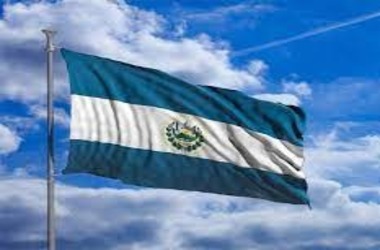
According to Bloomberg, the purchase Bukele claims he made would have resulted in an expense of roughly $71 million to the Central American nation based on an average purchase price of $51,056 per Bitcoin based on the time stamp of his tweets.
In case the government still holds the digital currencies, they’re now valued around $61 million at Wednesday’s pricing, a 14% decrease. El Salvador started purchasing Bitcoin last September, after Bukele steered through legislation to make the country the first to recognize it as legal cash.
Bitcoin was selling at $50,000 at the time, and the country kept buying as the currency hit a historic high of over $69,000 at the start of November. Since then, it has lost nearly 40% of its price. In addition to the notional losses caused by Bitcoin’s decline, the drop in the value of the country’s bonds has increased El Salvador’s borrowing expenses.
The country’s offshore dollar bonds had the poorest return worldwide in 2021, as investors were scared off by Bukele’s unconventional management of the economy and the country’s trial with Bitcoin. The yield on the country’s $800 million in dollar notes due January 2023 increased to 34% on Tuesday, up from a mere 9% last year.
Due to the International Monetary Finance’s reservations about Bitcoin, an prolonged funding facility with the IMF has not materialized. Bukele has become a Bitcoin celebrity, purchasing at low prices and proposing to establish a tax-free Bitcoin City on the country’s shore. His administration said that investors who purchase $100,000 or more of a prospective blockchain bond slated to be launched this year on Blockstream Corp.’s Liquid Network would be granted expedited citizenship.
He reportedly participated in Twitter battles with Bitcoin detractors, labeling Johns Hopkins economist Steve Hanke a “id10t” after Hanke called Bukele’s idea to mine Bitcoin using geothermal power from a dormant volcano “silliness from a narcissistic head of state who is totally hyperbole.”
Last Monday, Finance Minister Alejandro Zelaya stated that the state had turned part of the Bitcoins acquired back into US dollars, although no clarification was provided. He said that a group of government officials selects when to purchase dips. Bukele’s government intends to use any trade proceeds to create a public animal hospital, he added.
The government’s Bitcoin address is a closely guarded secret. The government claims to have a $150 million reserve at government backed bank Bandesal to support Bitcoin transactions, however no details have been released. “Uncertainty encompasses everything linked to it,” stated Ricardo Castaneda, an economist at the Central America Fiscal Studies Institute headquartered in El Salvador. “There is no public data on the quantity of Bitcoin acquired by the government, the purchase price, or the quantity held as reserve,” he stated.
El Salvador legalized bitcoin beside the dollar in September, and millions of individuals have downloaded the country’s digital wallet program, dubbed Chivo. According to Nathalie Marshik, director of emerging-market sovereign analysis at Stifel Nicolaus & Co. in New York, the government will face a $1 billion financing deficit in 2022.
“The government has significant funding requirements. What currency is it trading BTC with today?” she asked. “I can see why the Salvadoran taxpayers would be upset about this, particularly considering the recent Bitcoin crash. It’s difficult to explain a government trading such a dangerous asset with public money under such murky conditions.”